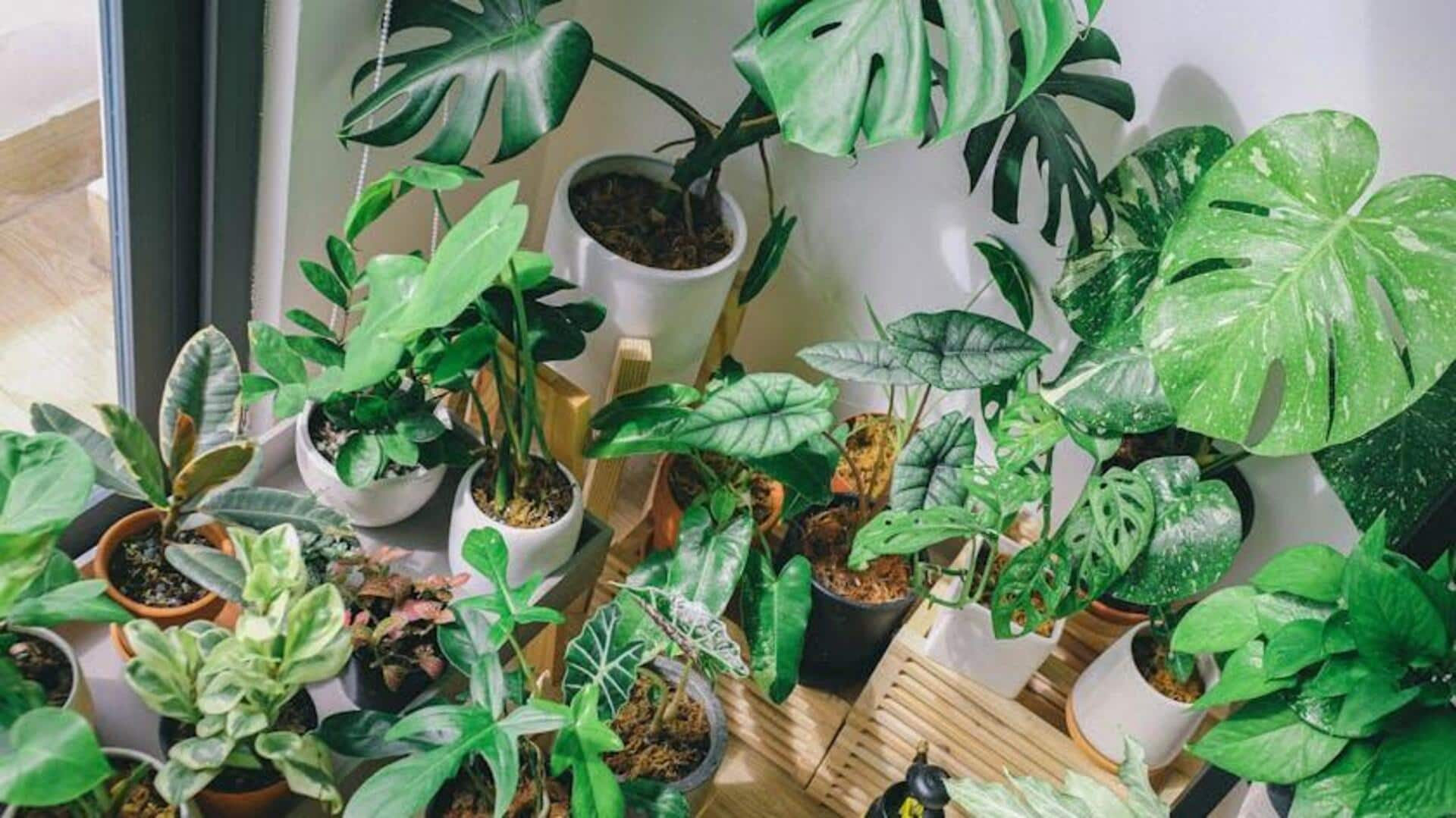
5 must-know nutrients for healthy indoor plants
What's the story
Indoor plants need certain nutrients to thrive and grow well. These nutrients are important for a number of functions in the plant, including photosynthesis, root development, and vitality. Knowing about the essential nutrients can help you give your indoor plants the best care, so that they stay lush and vibrant. Here are some of the top nutrients required for unstoppable indoor plant growth.
#1
Nitrogen: The growth booster
Nitrogen is key to plant growth as it's a major constituent of chlorophyll, which is important for photosynthesis. It aids in the creation of amino acids, proteins, and enzymes that are important for plant growth. A nitrogen deficiency can result in stunted growth and yellowing leaves. Making sure your indoor plants get enough nitrogen will ensure lush foliage and healthy growth.
#2
Phosphorus: Root development enhancer
Phosphorus has an important role in transferring energy within plants through ATP (adenosine triphosphate). It is essential for the roots and flowering. Proper phosphorus levels ensure that roots are strong enough to absorb water and nutrients from the soil efficiently. Lack of phosphorus may lead to weak root systems and poor flowering.
#3
Potassium: Disease resistance promoter
Potassium is critical in controlling various functions in plants, such as water uptake, enzyme activation, and photosynthesis. It boosts disease resistance by strengthening cell walls and improving plant health overall. Plants with adequate potassium content are more resistant to environmental stresses, such as drought or pest attacks.
#4
Calcium: Structural support provider
Calcium aids cell wall structure by forming calcium pectate compounds to add rigidity to cells. It also helps with nutrient uptake by maintaining proper membrane permeability at the cellular level. It also prevents blossom end rot, a common problem among fruit-bearing indoor plants like tomatoes or peppers. This is done by stabilizing cell walls during rapid fruit expansion phases.
#5
Magnesium: Chlorophyll production aid
Magnesium acts as a core atom in chlorophyll molecules, capturing light energy during photosynthesis. So, it is a key player in food production processes in green tissues of all kinds/species grown indoors alike. Without sufficient magnesium, their systems' metabolic pathways cannot work at their best. This ultimately results into lower productivity rates observed through lower yields over time if unchecked indefinitely. So, ensure not just monitoring but also supplementation as required.